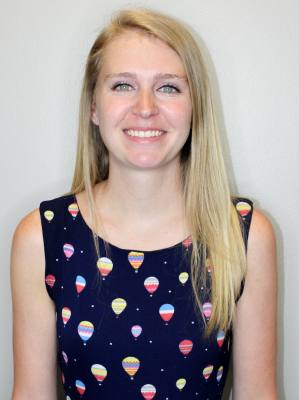“I never intended to stay, but I went ahead and accepted the job as the assistant city manager in January of '95,” Bogard said.
Bogard started out helping Sugar Land’s first city manager, David Neely, with contract work in the community development realm, he said.
“The city was growing like crazy, and I had been involved in growing cities both in Plano and in Keller,” Borgard said. “I helped him get some folks hired, and during that process I decided that this wasn’t too bad of a place to land for a while.”
As assistant city manager, Bogard handled all departments except public safety, and when Neely retired, City Council offered Bogard the role of city manager in 2001. And he accepted.
Born in Los Angeles and raised in Arkansas, Bogard moved after high school to the Dallas area, where he got his start working as a storeroom clerk and tractor and tire repairman for the city of Dallas while going to college, he said.
“I had no support,” he said. “I was on my own. I worked my way through school and finished in four years and one summer semester.”
Bogard went on to get his master’s degree and continued to work his way up in city government, going on to become city manager of Winsboro and then Keller before making it to Sugar Land.
Through it all, Bogard said he credits his mother for his servant-heart leadership style.
“My dad died when I was 7, so I grew up with a with a single mom,” he said. “I had younger siblings, so the idea of caring for people and having that service orientation, I think, begins with my mom expecting that I help take care of my younger siblings.”
In his retirement, Bogard wants to take a break from the responsibilities of public service for a bit and assess the future for himself and his family as well as how he can provide service in another way.
“I don’t have any particular plans or aspirations about that, but I’m still relatively young, and so I’d like to continue to serve in some way, I just don’t know exactly how yet,” he said.
What is a milestone in Sugar Land that has been the most important to you?:
From a service perspective, the city taking responsibility for ambulance service through the fire department [about five years ago] I think is one of the most impactful decisions that we have made during my time. I think it significantly enhanced the safety of our citizens. Prior to that, 911 calls went to Fort Bend County. ... Our experience was there were not enough ambulances. There were not enough paramedics in the county to be able to respond in a time frame that hit the standards of care that we wanted to it to achieve. So, we explored it and concluded that we can take resources that were already assigned to the fire department and reorganize them. By using the fees that were generated and reassigning resources already within the fire department, we were able to add ambulance service at no additional cost to the residents.
As the potential bond election in November approaches, what goes into determining what would go into a bond package?
The needs of the city in the way of drainage are completely new and beyond anything that was expected. ... So the City Council has elected to go forward with a bond election, recognizing that that will put all of the projects moving forward out to the voters. ... The bond election that's currently being talked about—the largest portion is drainage. It's not that there aren't other needs. If all we had was drainage, we could do that. But we're not a levee district or a drainage district. We’re a city. Our police department has needs. Then you have the animal shelter, and that is a desire that has come forward to us from our citizens through our animal board.
What has been the biggest challenge of managing a growing city and expanding staff over the last couple of decades?
You get to a point with the size of the organization that you have to accept that you're not going to know everybody anymore. Years ago, when the size of the city was [smaller] and the organization was not as complex as it is now, you can pretty well have a feel for who everybody was. But that those days are behind us. Through that growth, you have to use a different skill set to influence the organization in the direction that you want it to go. You have to move from relying on personal relationships to building the culture of the organization. And that's what we've spent a lot of time on is setting very high expectations of our organization.
What do you feel prepared you to become city manager?
I don’t like cliches, but I don't know another way to describe it other than I have a servant heart. I get joy out of helping, and that's what this job is all about. Now, there's a lot of other things that are involved, too, like managing money and hiring people. But in its essence, it's about doing good and helping people. ... Every job I've had in public service has been a 24/7 job. Now, I don't bear the burden the way that a police chief or a firefighter does. But I hire the police chief. So ultimately, I am accountable for everything that goes on. You have to have a pretty strong core of who you are.






